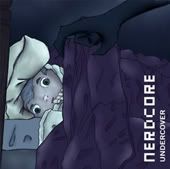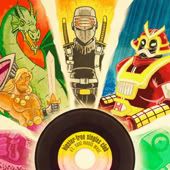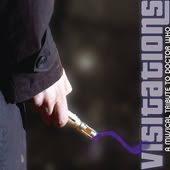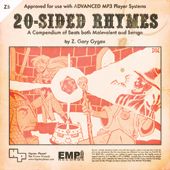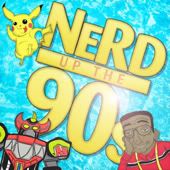
When I first heard Weezer's nigh-ridiculously named
third self-titled release
I was struck by the staggering revelation that, while I had grown up a lot since the 1990s, Rivers Cuomo had not. This isn't to say I didn't dig the album, or even that a writer necessarily needs to ripen emotionally in order to craft enjoyable songs. Where, for example would Trent Reznor be without his angsty and eternally adolescent rancor? But it does drive home a point about the sometimes tenuous place of the mature storyteller in popular music.
On the other hand, even since the earliest days of
Optimus Rhyme

, lyricist
Wheelie Cyberman has had that rare ability to impart a musical narrative – no matter how fantastical – in clear-cut (if not always concrete) terms. With both emotion and restraint. With both whimsy and wisdom. In short, he tells a story like a
storyteller, like a true seasoned wordsmith. His songs have heroes and villains, triumphs and fuck-ups, and he as narrator is just as likely to represent one side of that coin as the other. This means that even when a track takes place in some imaginary world populated by groove-hungry robots there still exists a level of honest realism.
The instrumentation of the
Optimus lineup did a lot to play to this strength. Beneath the soul-funk rhythms and punk rock attitude there was a strong undercurrent of blues, the backbone of the American musical tradition: an unpretentious music that shares a universal message about life, love and loss with a distinctly timeless gather-'round-and-hear-my-tale aesthetic.
After that project dissolved Wheelie moved on to chip-hop collective
Supercommuter, and their debut album still stands out as an amazing example of not only his unique rap style, but also as a kind of logical next step in his previous band's science fiction-y lean. The addition of chiptuner
Stenobot (holding down the instrumentals) and his brother
Tron Juan (whose ear for production pulled the whole thing together), assured that
Supercommuter 
proved itself an exemplary effort. But that album, by the admission of the band itself, was a bit of a sonic experiment cobbled together from pieces of songs the guys created during hours lost in traffic going to and from their respective day jobs.
Their recent follow-up,
Products of Science
, builds on the data that our heroic bots collected from this preliminary study. While fans would've certainly been satisfied with more of the same, Supercommuter pushed themselves on all levels, and the release is all the better for it.
Opening with "
The Commute Continueth," a clever reference to the original album's
starter track
, the guys ably employ the sharp and resonant blips of the classic Game Boy, but even from these early moments something is drastically different. Brighter and noticeably more cohesive as it transitions to "
DMG We Trust in Thee
," there is much more in the way of melody, both vocally and instrumentally, than the band has previously displayed. Amid rapid-fire verses and a gorgeously textured chorus, "DMG" explains the group itself; it smashes the sonic fourth wall somehow without ever losing its darkly futuristic edge.
The warbling, dissonant groove of "
It is Splendid
" quickly morphs into a genuine hip-hop banger with appropriately spacey singing and a quick drop-off that takes us back to earth for debut single "
#1 Kyabajo
." Thick and twisting, thanks in part to an enchanting counter-melody and a fierce breakdown, it drops the band's established sci-fi pretense.
This extends into "
Wheelie's Lament
," a song that sees the MC wrestling with inner insecurities via a very public forum. (And it's also a joint that boasts a truly clever allusion to
Kurtis Blow
!) Then an unceremonious shift takes us back to the world of Wheelie's space bound alter-ego in "Frozen," a heartbreaking tale of interstellar travel, loneliness and creeping madness.
The tone changes quickly with instrumental "
Script Kitties
," a four-minute marathon of erratic beats and churning
LSDJ loops topped off with eerie samples. It's the perfect prelude to the ultra-violent "
Robot Party
," a stand-out cut that's only slightly diminished as a known property; it was previous released on the first
Nerdcore Now compilation.
"
Natural Immunity
" pairs Wheelie's motor mouth and Stumblebee's drunken baritone for the first time since the demise of Optimus Rhyme. It's also likely the music world's most upbeat post-plague narrative. "
FF45
" sounds a bit like a throw-back to the previous album, with an odd layering of vocoded singing and straight-ahead rap that fails to gel early on, but later turns into the project's most vivid story-song. Touching on the recurring motifs of isolation, the marriage of man and machine and the potential horrors of technology, it's complex but easy to love.
"
We're Watching You
" breaks tradition by relying heavily on acoustic guitar (although the electronic elements are still readily apparent.) Another stand-out, it retells Clarke's
Childhood's End

in exquisite detail, capturing both hope and misery in sharp detail. From there
Products of Science draws to a close with "
Victory Song
." As upbeat as the name implies, it marks the album's end in true 8-bit style and genuinely channels that rush of "beating the game."
As I've
already mentioned, the title of Album of the Year is already hotly contested. It's a crowded playing field stocked with veteran songwriters pulling out all the proverbial stops to wow those of us in the listening public. Still, amid all of these
Products of Science
stands out among the best of the best.
With a magical blend of innate talent and savvy construction, the album truly mines the breadth of the genius that is Supercommuter. Wheelie remains, as ever, one of my favorite voices from the hip-hop underground, and Stenobot makes a DMG sing like no one else I've heard. Add to this Tron – a guy who always seems to know how to pitch-shift a vocal run or strip down a beat for maximum impact – and you have what is likely the most commanding and unorthodox power trio in the entire spectrum of geeky, techy music.
Products of Science
not only sees the chrome of these three androids shine the brightest yet, but it also pulls in amazing support staff in the form of pitch-perfect vocalists like Rachel Haden and Jen Wood (the wife of the band's own Tron Juan) for added flair.
Dark, introspective and representing a more refined approach, it's an album that will likely move a lot of copies, but probably not as many as its level of quality genuinely warrants. So pick one up. Shit, pick up two! All the proceeds benefit the
Child's Play charity. Which I reckon proves beyond all doubt that these robots, as cold and calculating as they are, still possess real human hearts.
"I remember the moment when / The machines stopped listening."
 When I first heard Weezer's nigh-ridiculously named third self-titled release
When I first heard Weezer's nigh-ridiculously named third self-titled release



